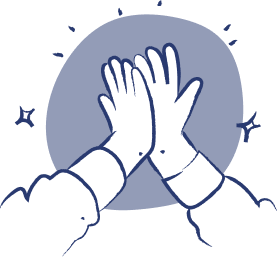Herpes Simplex Encephalitis Lived Experience – Natasha’s Story

Natasha talks about her lived experience of encephalitis.
I was a happy and healthy toddler – walking, talking and generally trashing the tidy house by the time I was two years-old. But a few months after I turned two, in 1996, I was struck down with encephalitis. After a few weeks in hospital, I made a good and full recovery and was able to go home – although it took me a couple more weeks to start walking independently again.
I know I come from a place of privilege when I say that my encephalitis did not hinder me or hold me back during my academic career, right from primary school through to graduating with a First Class Honours degree. I remember getting quite tired after long days or weeks at school, often needing to sleep for the best part of a day before being active again – almost like the feeling you get when you get home after a transatlantic night flight – but my experience of schooling was nothing but normal.
Over the last few years, I’ve become involved in Encephalitis International and I’ve been seeing a neurologist and, through this, I have become acutely aware that my experience of encephalitis was a lot “better” than most. And I struggled with this somehow. I read stories of survivors’ left with life-changing and life-limiting conditions. I heard how the aftermath of their illness left them with daily struggles. I read stories of heartbreak and tragedy, of people taken well before their time as a result of encephalitis. I heard the pain and suffering of their families.
And I felt guilty. I still sometimes feel guilty. Because, apart from some very dodgy co-ordination, a touch of motor dysfunction and occasional bouts of intense fatigue, I am okay. I am so grateful to be able to live a typical life, without the awful after-effects encephalitis can leave a person with. But there is a part of me that feels guilty and sad about this because I am aware of how different things could have been. Which is why it’s taken me so long to talk about my illness. Up until a few years ago, I wouldn’t ever mention it online. I wouldn’t mention it to colleagues. I mentioned it at school a fair bit, because it was my way of trying to defend myself against accusations of “laziness” and “poor concentration”. Not that they ever took that explanation, mind.
A few years ago, events in my personal life led me to explore the possibility of lasting damage, so I was referred to a neurologist. An MRI scan discovered some things which vindicated the struggles I had been facing and that diagnosis led me to realise that, although my experience was different, it wasn’t invalid. And that if I felt this way, there would be at least one other survivor who felt that way too.
So that’s why I’m talking now. Talking, and listening, are free devices anybody can make use of and their impact knows no bounds. Through my journey with encephalitis and its impact, I have learned that no two experiences are alike and each one is important. Encephalitis was a big event in my life, especially at such a young age, but it does not define me.
Find more information on the different types of encephalitis here.
Get help
Our support team are available from 9am to 5pm (GMT), Monday to Thursday, and 9am to 4.30pm (GMT) on Fridays.
To get in touch, simply call +44(0)1653 699599.
Contact our helpline
